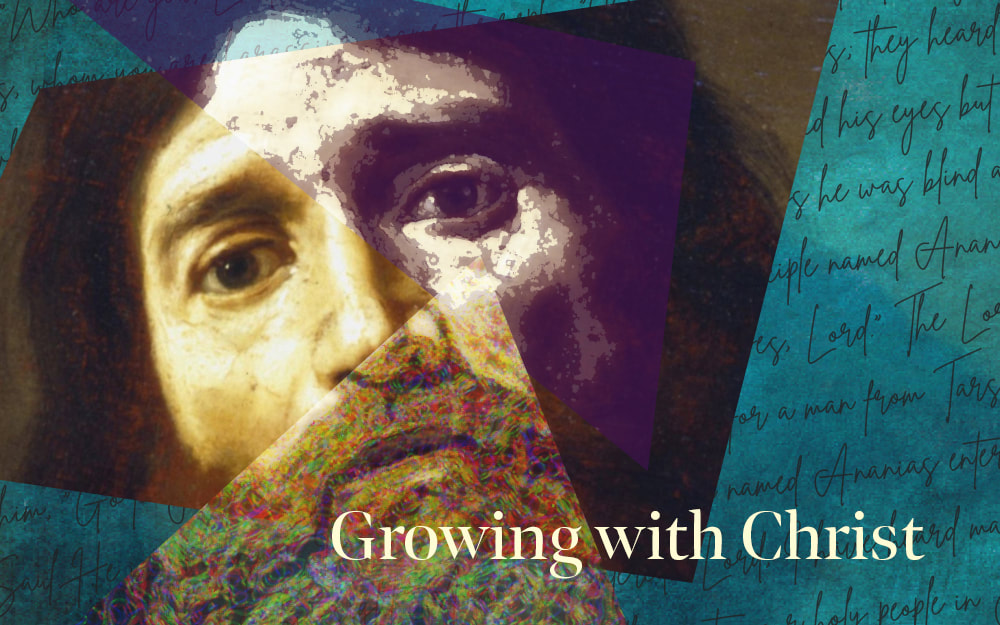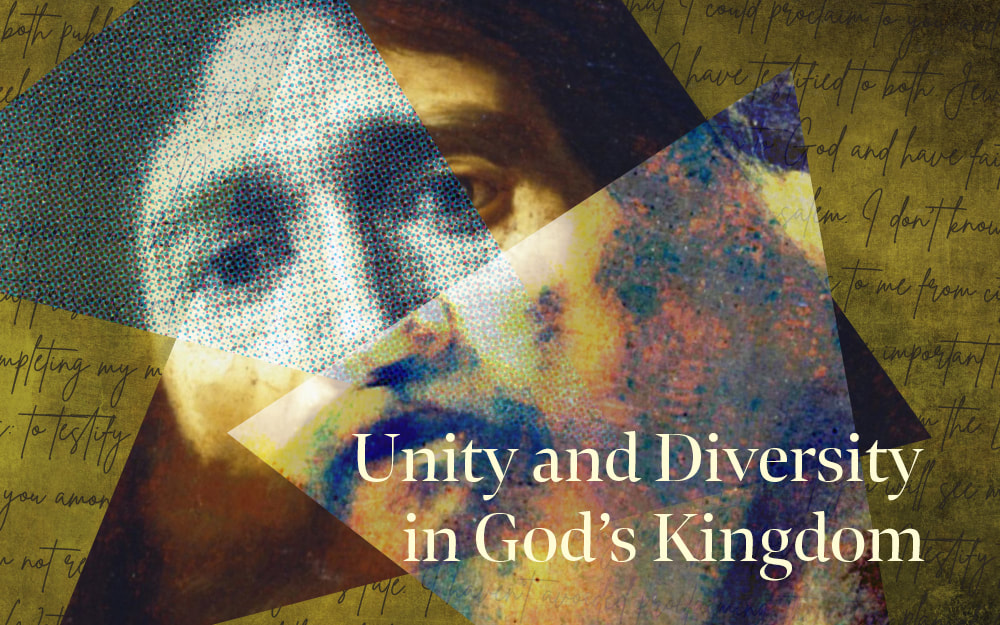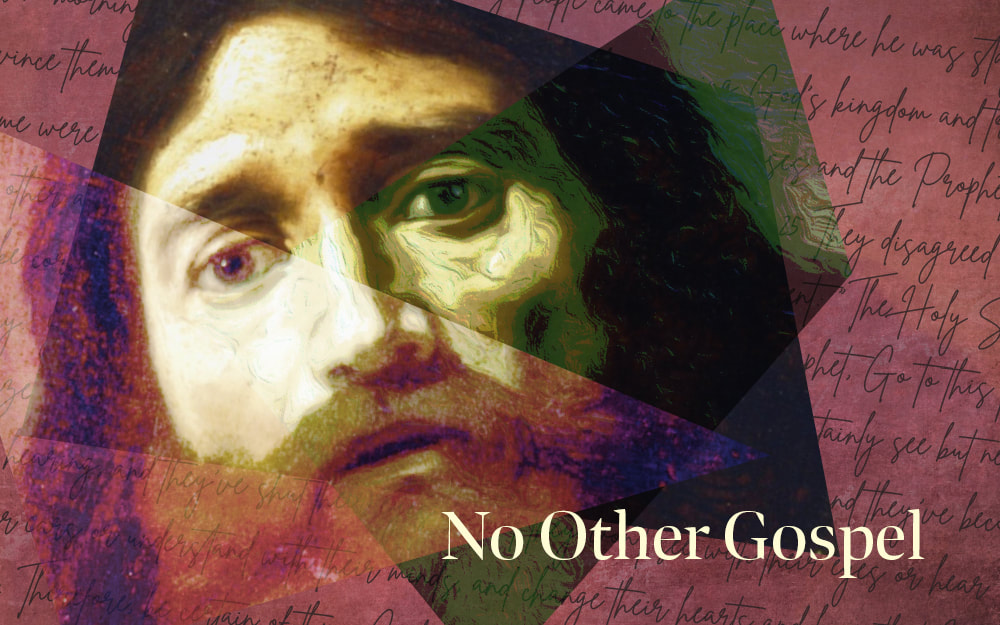First UMC Newport, TN
August 13 - October 29, 2023
There are so many rich themes found in the letters that are attributed to the Apostle Paul. It is clear from the tone of each text: Paul certainly lacks no sense of urgency or conviction! This man is someone to whom we can look as we strive to follow Christ, while also recognizing the realities of life. Paul was no stranger to suffering for the sake of the Gospel. Amid the temptations of divisions, shallow contentment, or misled teachers, Paul boldly reminds his flocks what a life in God’s economy entails: unity, boldness, and defense of the one true Gospel. These themes are the bedrock for not only Paul’s mission as a devoted follower of Christ and leader of early Christians, but serve as the foundation for us still today. Overall, each of these three themes leads to real transformation.
Everybody loves a story, so we need to tell the story of Paul, weaving into where he was in his writing and his ministry. The chronology makes the story so much more authentic, even shocking. So we will connect the dots of Paul’s life and ministry, dropping down regularly to hear Paul in his letters addressed to the churches in his care.
We will use NT Wright’s chronology of Paul’s ministry. It is as good as any and better than most. It can be found in the back of Wright’s book, Paul.
Everybody loves a story, so we need to tell the story of Paul, weaving into where he was in his writing and his ministry. The chronology makes the story so much more authentic, even shocking. So we will connect the dots of Paul’s life and ministry, dropping down regularly to hear Paul in his letters addressed to the churches in his care.
We will use NT Wright’s chronology of Paul’s ministry. It is as good as any and better than most. It can be found in the back of Wright’s book, Paul.
|
Emerging from fifteen years being readied to be the apostle to the Gentiles, Paul and his traveling companion, Barnabas, make a trip into Asia Minor, modern-day Turkey. Luke lets us listen on Paul the preacher as he speaks first to a gathering of Jews and God-fearers. Paul begins with the story of the Exodus and brings it forward to Jesus, through whom everyone is set free from sin, a righteousness that could not be obtained through the Law of Moses (13:39).
|
Galatians is perhaps the earliest of Paul’s letters in the NT. Written to Christian communities in central Asia Minor, between his first and second missionary journeys. The letter reveals that these churches have significant problems, even falling prey to those spreading a pseudo-Gospel. Paul writes with a strong edge – for what could matter more than this spreading of the Good News. Not surprisingly, Paul’s touches on the three themes in this series, as will most of this letter: stay true to the authentic Gospel, remain unified as the reborn people of God, and grow in Christ-likeness, i.e., in the fruit of the Holy Spirit who dwells in us all.
|
August 27 - "The Second Journey Begins"
Paul’s 2nd journey cements his mission to the Gentiles, as he travels through Asia Minor and then across into Macedonia and Greece. He continues to found new communities of believers. Early on, he meets Timothy who becomes one of Paul’s most important associates. In Philippi, Paul meets Lydia, who embraces the Gospel. Always on the move, Paul is chased out of Thessalonica and embraced in Berea. In Corinth, Paul meets Priscilla and her husband, Aquila, who become leaders in the early church. In all this, we see the Holy Spirit at work: sending Paul westward (Acts 16:6-10), opening hearts to the truth of the Gospel, gathering new leaders, even springing Paul and Silas from jail in Philippi (16:16-40). The Spirit will not be held back, instead pressing Paul ever forward. The work of the Spirit continues in us all even now.
September 10 - "Paul-On to Athens and Corinth"We return to Paul’s second journey and two pivotal stops. In Athens, Paul preaches to the intellectual heart of the Greco-Roman world, in terms that will speak to them. He tells them about one true God and that the time for judgment has come. And the proof? The resurrection of Jesus. Some wanted to hear more, some sneered. Much like 2022. Paul goes on to Corinth, where he spends eighteen months and meets Priscilla and Aquila, who will become early leaders in the church. Paul set up his tent-making business alongside theirs, working with them and “reasoning” in the synagogue every Sabbath “trying to persuade Jews and Greeks” (18:4). And how did he reason? From the Hebrew scriptures outward to Jesus. Just as we are called to sit down today and reason together about our differences, on the basis of the authority of Scriptures. As usual, once it became too difficult with the Jews in Corinth, Paul went on to preaching to the Gentiles.
September 24 - "Paul - The Apostle of Love"We continue in 1 Corinthians with Paul's comment on the abuses laid out 1 Corinthians 11 and note the already-formed traditions in 11:23-26. This is the oldest writing we have on the Lord’s supper. 1 Corinthians 13 has become such an oft-used wedding piece, we’d almost think that was the occasion for its writing. It was not. The Corinthians have an over-spiritualized understanding of the Christian life, so Paul urges them to remember all the spiritual gifts they might claim pale next to the gift of love. Even a quick reading of the chapter reveals that even this theology is eschatological for Paul, looking ahead to the day when love will be complete. For a Wesleyan, love is where we begin to understand the nature of God and his work in this world.
|
September 3 - "Paul to the Thessalonians"Paul was not only the founder of many Christian communities, he continued to be their “senior pastor,” writing back to them and even visiting some on later trips. One such community is Thessalonica, where there had been trouble with some of the Jews in the city who had rejected Paul’s message. 1 and 2 Thessalonians are early letters (AD 50/51) written not long after Paul’s first visit. 1 Thessalonians opens with a lengthy thanksgiving (1:2-10) for the faithful disciples, who had become imitators of Paul and Jesus. Paul commends them to all of Achaia (the Greek mainland south of Macedonia), for their faith has become known everywhere (1:8). May the same be true of us! 2 Thessalonians 2:13-17 is one of many calls from Paul for the believers to “stand firm and hold fast to the teachings” Paul had passed on to them (2 Thessalonians 2:15).
September 17 - "Paul-A Third Journey"
|
October 8 - "Paul to the Colossians"Paul’s writings often reflect the high expectations that God has for God’s people. Through Jesus Christ, invisible God is made visible, as Paul writes in Colossians 1:15. Since the beginning, God has been about the business of reconciling us back to God, in loving-kindness. But now, in the a new way, Paul highlights the crucial role Jesus has in this mission . . . and the supremacy of the Son of God, as he describes, is far beyond our wildest dreams. In Jesus, who is both fully God and fully man, we are given the example of the actions and attributes of a life in right relationship with God. Paul correctly treats this with the intensity it deserves – by writing in his letter to Colossae the ways in which maturity in Christ is not only ideal, but expected. In fact, this maturity will yield real transformation, by growing in our relationships, movements, and conversations so that our very existence serves as a pointer to the Light of Light, true God of true God.
October 22 - "Paul and Timothy"A man named Timothy is a coworker in ministry alongside the apostle Paul, known for being the young apprentice with whom Paul engages in mentorship. In 1Timothy, Paul is greatly concerned with the authentic teachings of the true Gospel of Jesus Christ, and the danger of misinformation of false teachers in his era. Over two millennium, our concern was hardly wavered – are we not still concerned about reality and discerning what is ‘fake news’? This was a rightful concern then, as it is now. What then does the minister, Paul, recommend as attributes when discerning teachings of God? That the work of God would be advanced through sincere faith, a good conscience, and pure heart. Thus, these are qualities for which we can pray! In the whole of Scripture, it is clear that God’s hope for humanity is that we would rightly desire God – above anything and everything else. There is no other Gospel than Christ.
|
October 15 - "Paul to the Roman House Churches"The best part about a team is that each individual member brings something unique to the collective whole for the purpose of advancing toward the team’s goal. Paul’s writings serve to spread this idea in the early Christian faith as he encourages the hearers of his letter to the Romans to not only discern their individual gifts (given graciously to them by God), but moreover to put them in action. Here, ‘the team’ is the body of Christ. As Paul has written before, a key element of his ministry is focused on unifying a diverse group of people, to advance the mission given to him by Christ. How can one ever endure this mission if they are lost in conforming to the (fleeting, faulted, and frail) pattern of this world...no, rather we must be “transformed by the renewing of [our] minds” as he writes in Romans 12:2!
October 29 - "The End of the Story??"The conclusion of the book of Acts provides a glimpse into Paul’s remaining years of life proclaiming the coming kingdom of God and “welcoming everyone who came to see him”. Though throughout his journeys Paul met opposition, strife, and persecution of his own, he was undeterred and unrelenting from his mission – to spread the Gospel to the gentiles, unifying a diverse people in the name of Christ, and teaching that there is no other Gospel. No matter the cost, as Paul writes to Philippi, there is nothing of more surpassing value than to know Christ and be found in him.
|


